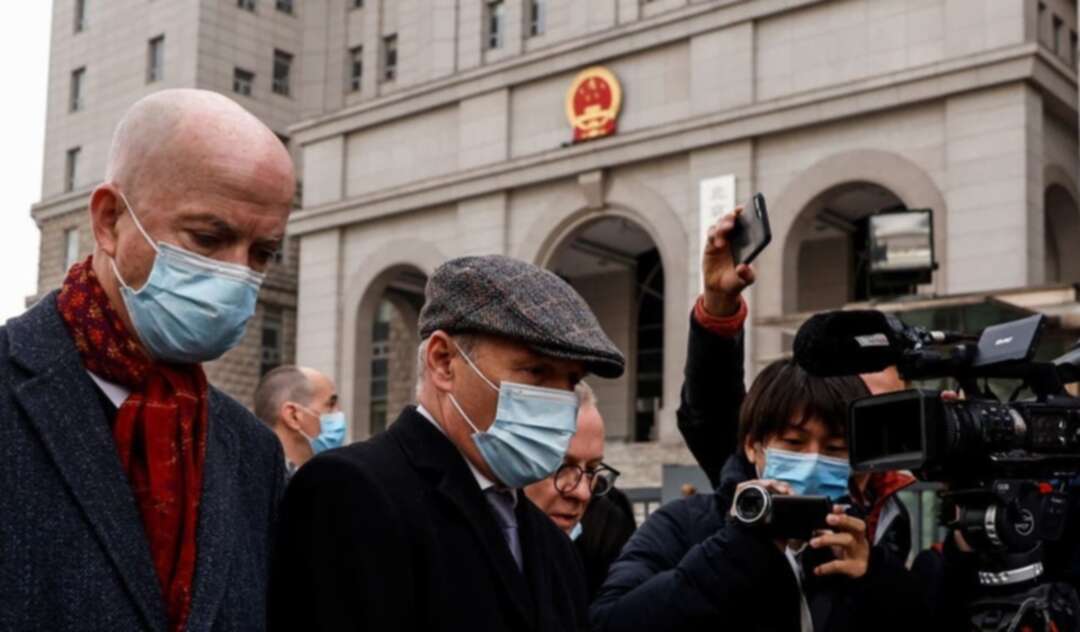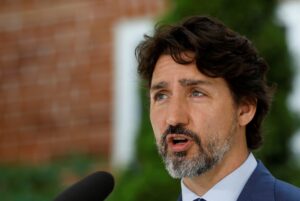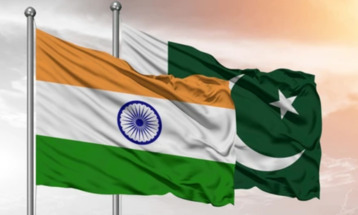-
Another Canadian goes on trial in China over spying charges

A second Canadian citizen held for more than two years on spying charges in apparent retaliation for Canada’s arrest of a senior executive of the telecoms giant Huawei went on trial in Beijing on Monday.
The trial Monday of analyst and former diplomat Michael Kovrig in Beijing follows an initial hearing in the case of entrepreneur Michael Spavor in the northeastern city of Dandong on Friday.
Canadian diplomats have been refused access to trials and been told hearings would be held behind closed doors because of alleged national security concerns. Diplomats and journalists have showed up nonetheless to seek information and show support.
Outside Beijing’s No. 2 Intermediate Court, Jim Nickel, the Canadian Embassy’s deputy chief of mission, told journalists he had been told the trial had begun, but was barred from entry in what he said was a violation of China’s international and bilateral treaty obligations.
“Michael Kovrig has been detained for more than two years now. He’s been arbitrarily detained and now we see that the court process itself is not transparent,” Nickel told reporters. “We’re very troubled by this but we thank those who have come out from the embassies here in Beijing and the international support that we’ve had for Michael, for Canada and the call that many of us are making for their immediate release.”
Nickel said 26 countries had sent representatives to show their support, including the US, the UK, Australia and many European nations. It wasn’t clear how long the trial would last or when a verdict would be announced.
The government has provided almost no information about the accusations against the two, but a newspaper run by the ruling Communist Party alleges they collaborated in stealing state secrets and sending them abroad. No verdict has been announced in Spavor’s case and it wasn’t clear if additional hearings would be held.
However, such cases are almost always predetermined in China, and Beijing is seen as using Kovrig and Spavor as leverage to obtain the release of Huawei executive Meng Wanzhou, who was arrested at the request of the US at the airport in Vancouver, British Columbia, in December 2019. The two Canadians were detained in China just days later.
Meng is sought by the US on fraud charges related to the telecom giant’s dealings with Iran, which is under American financial sanctions.
The two Canadians have been held ever since, while Meng has been released on bail. They were charged in June 2020 under China’s broadly defined national security laws.
 Canada's Prime Minister Justin Trudeau arrives for a news conference at Rideau Cottage, as efforts continue to help slow the spread of coronavirus disease (COVID-19), in Ottawa, Ontario, Canada June 22, 2020. (File photo: Reuters)
Canada's Prime Minister Justin Trudeau arrives for a news conference at Rideau Cottage, as efforts continue to help slow the spread of coronavirus disease (COVID-19), in Ottawa, Ontario, Canada June 22, 2020. (File photo: Reuters)Canadian Prime Minister Justin Trudeau blasted Beijing for holding the trial “in secret” without access for consular officials.
“Their arbitrary detention is completely unacceptable, as is the lack of transparency around these court proceedings,” Trudeau said in Ottawa.
“China needs to understand that it is not just about two Canadians. It’s about respect for the rule of law and relationships with a broad range of Western countries that are at play with the arbitrary detention and the coercive diplomacy that they’ve engaged in.”
Meng’s case has deeply angered China’s government, which has promoted Huawei as a global leader in mobile communications technology, and sees her detention as a deliberate attempt to malign Chinese companies and impede the nation’s growing economic and political clout. Beijing has demanded her immediate and unconditional release and has also restricted various Canadian exports, including canola oil seed, and handed death sentences to another four Canadians convicted of drug smuggling.
The US and Canada have pledged to work together with China to seek the release of Kovrig and Spavor, but meetings between top US and Chinese diplomats last week, the first President Joe Biden took office, seemed to offer little hope.
US Secretary of State Antony Blinken said Chinese human rights abuses “threaten the rules-based order that maintains global stability,” while senior Chinese foreign policy adviser Yang Jiechi said China “will not accept unwarranted accusations from the US side,” and that relations had fallen “into a period of unprecedented difficulty.”
President and head of the Chinese Communist Party Xi Jinping is driving the assertive approach to foreign relations, alongside bold domestic policies to eliminate poverty and restore rapid economic growth following the coronavirus pandemic, said Steve Tsang, director of the SOAS China Institute at the University of London.
“Xi is extremely ambitious, and he compares himself ... to Mao Zedong and the first Emperor of China,” Tsang wrote in an email to The Associated Press.
source: The Associated Press
Image source: Reuters
Levant
You May Also Like
Popular Posts
Caricature
BENEFIT Sponsors BuildHer...
- April 23, 2025
BENEFIT, the Kingdom’s innovator and leading company in Fintech and electronic financial transactions service, has sponsored the BuildHer CityHack 2025 Hackathon, a two-day event spearheaded by the College of Engineering and Technology at the Royal University for Women (RUW).
Aimed at secondary school students, the event brought together a distinguished group of academic professionals and technology experts to mentor and inspire young participants.
More than 100 high school students from across the Kingdom of Bahrain took part in the hackathon, which featured an intensive programme of training workshops and hands-on sessions. These activities were tailored to enhance participants’ critical thinking, collaborative problem-solving, and team-building capabilities, while also encouraging the development of practical and sustainable solutions to contemporary challenges using modern technological tools.
BENEFIT’s Chief Executive Mr. Abdulwahed AlJanahi, commented: “Our support for this educational hackathon reflects our long-term strategic vision to nurture the talents of emerging national youth and empower the next generation of accomplished female leaders in technology. By fostering creativity and innovation, we aim to contribute meaningfully to Bahrain’s comprehensive development goals and align with the aspirations outlined in the Kingdom’s Vision 2030—an ambition in which BENEFIT plays a central role.”
Professor Riyadh Yousif Hamzah, President of the Royal University for Women, commented: “This initiative reflects our commitment to advancing women in STEM fields. We're cultivating a generation of creative, solution-driven female leaders who will drive national development. Our partnership with BENEFIT exemplifies the powerful synergy between academia and private sector in supporting educational innovation.”
Hanan Abdulla Hasan, Senior Manager, PR & Communication at BENEFIT, said: “We are honoured to collaborate with RUW in supporting this remarkable technology-focused event. It highlights our commitment to social responsibility, and our ongoing efforts to enhance the digital and innovation capabilities of young Bahraini women and foster their ability to harness technological tools in the service of a smarter, more sustainable future.”
For his part, Dr. Humam ElAgha, Acting Dean of the College of Engineering and Technology at the University, said: “BuildHer CityHack 2025 embodies our hands-on approach to education. By tackling real-world problems through creative thinking and sustainable solutions, we're preparing women to thrive in the knowledge economy – a cornerstone of the University's vision.”
opinion
Report
ads
Newsletter
Subscribe to our mailing list to get the new updates!






















